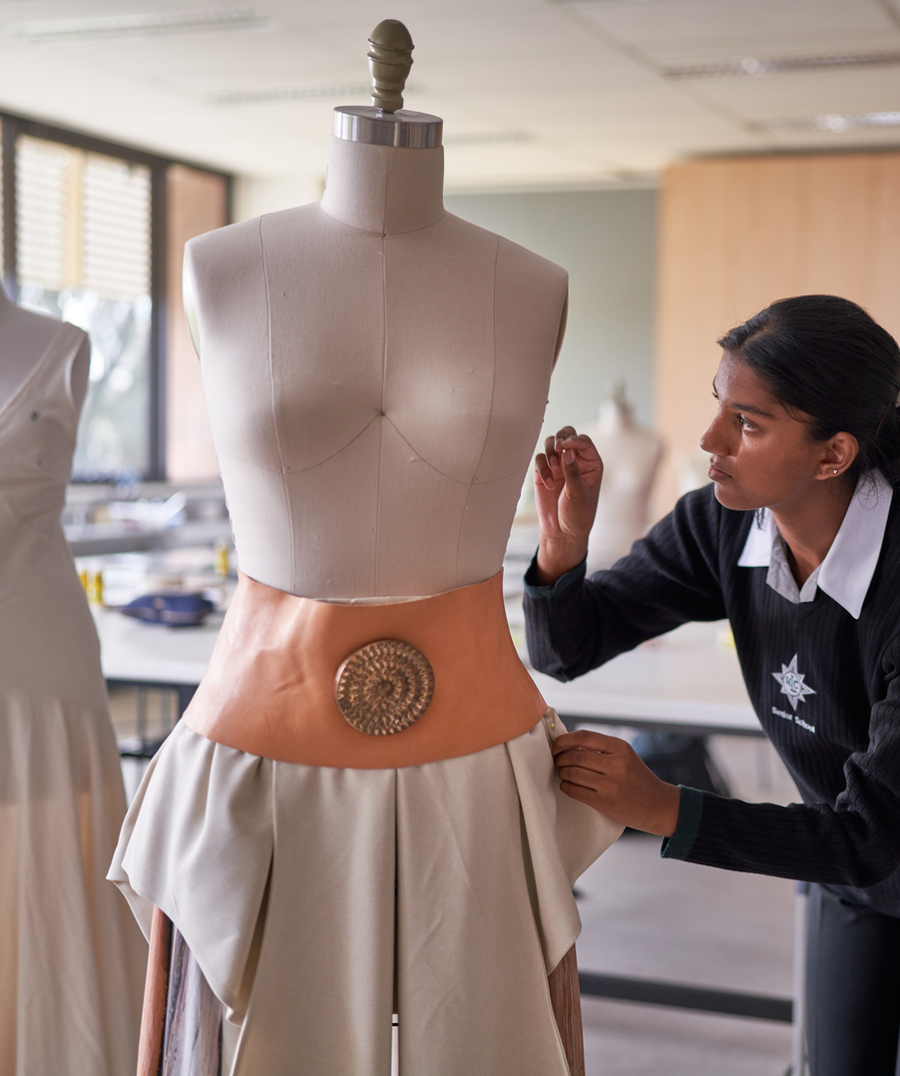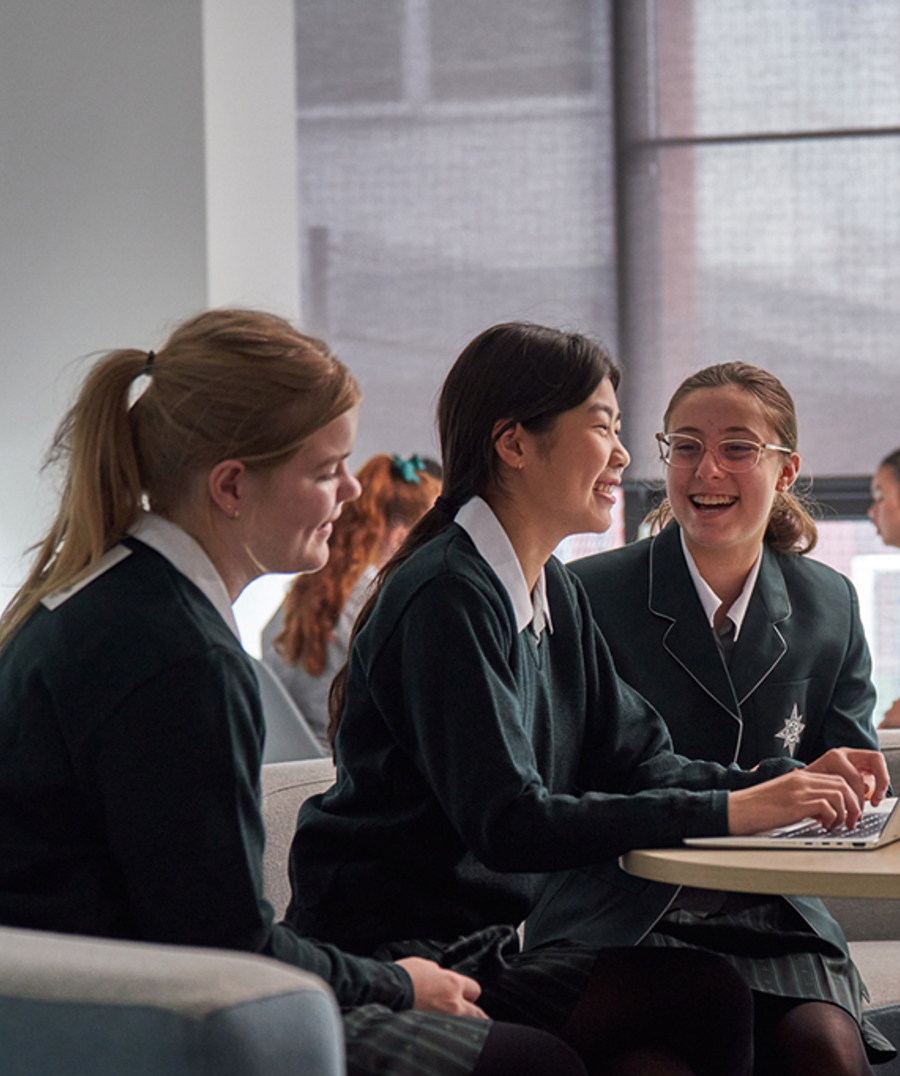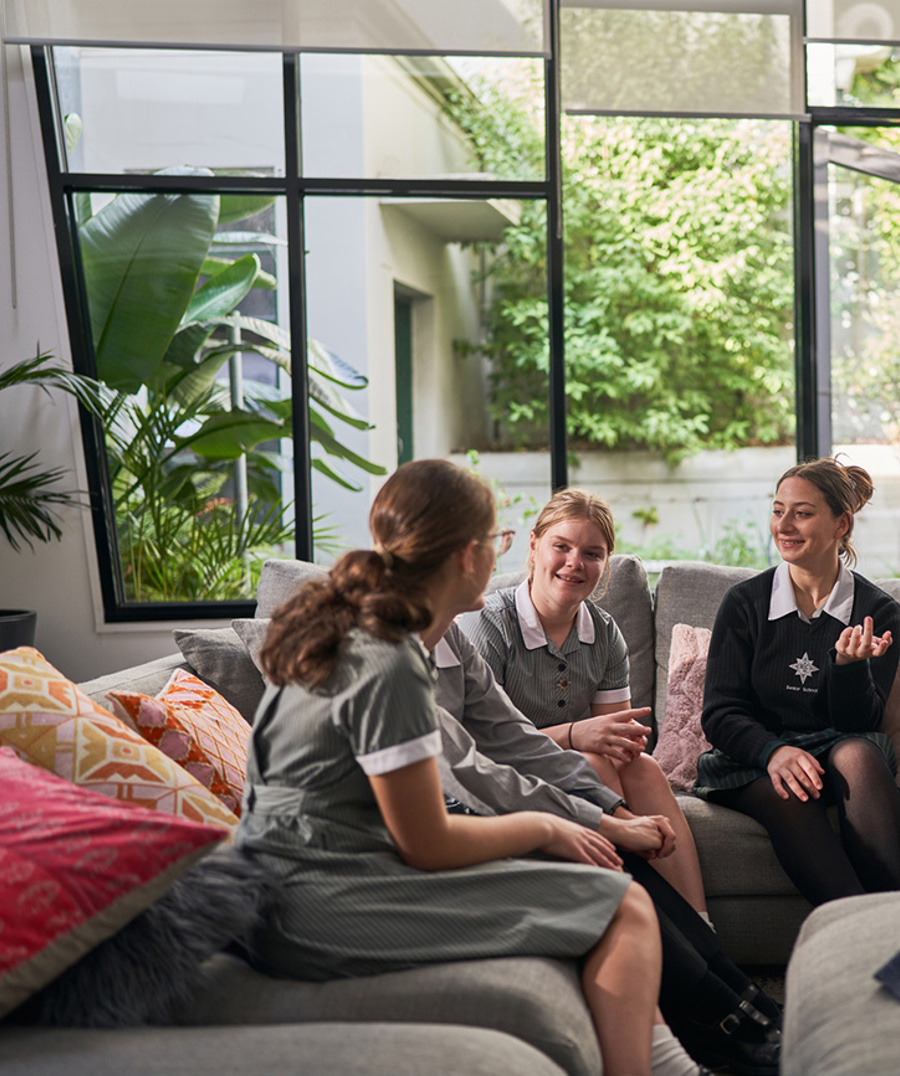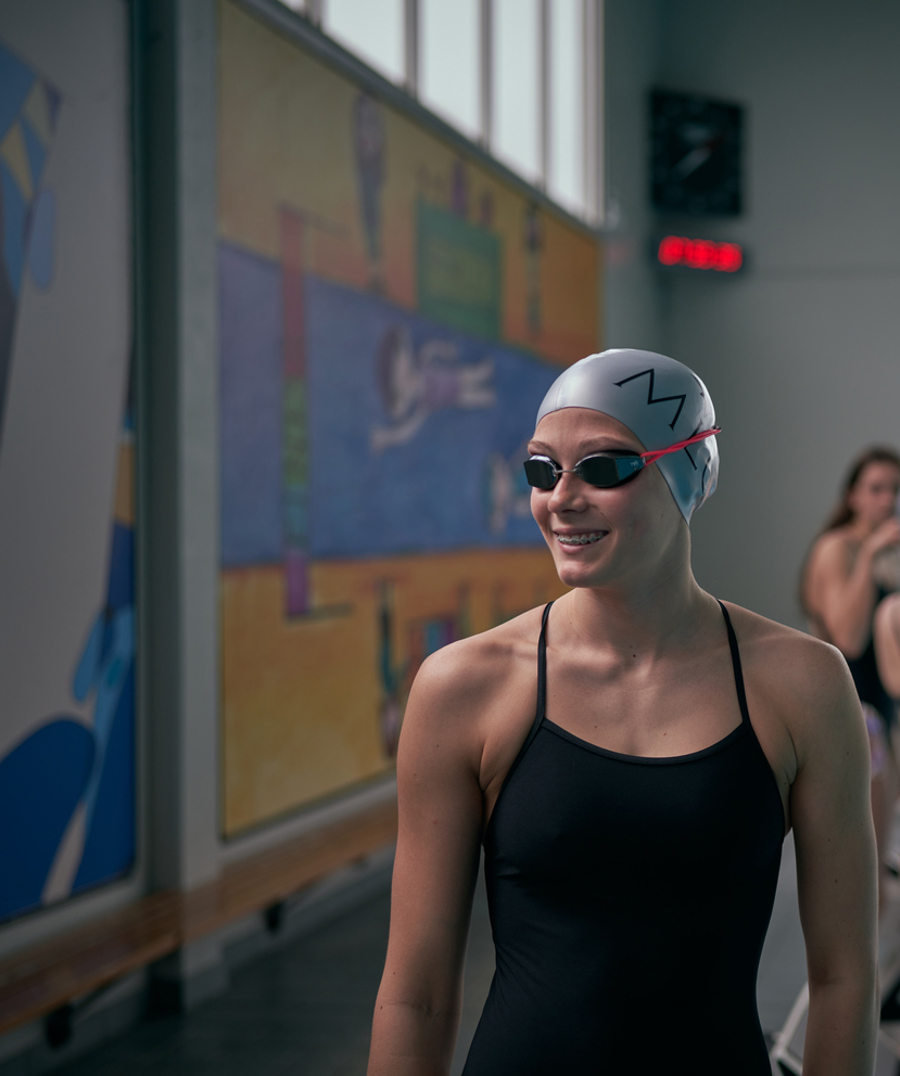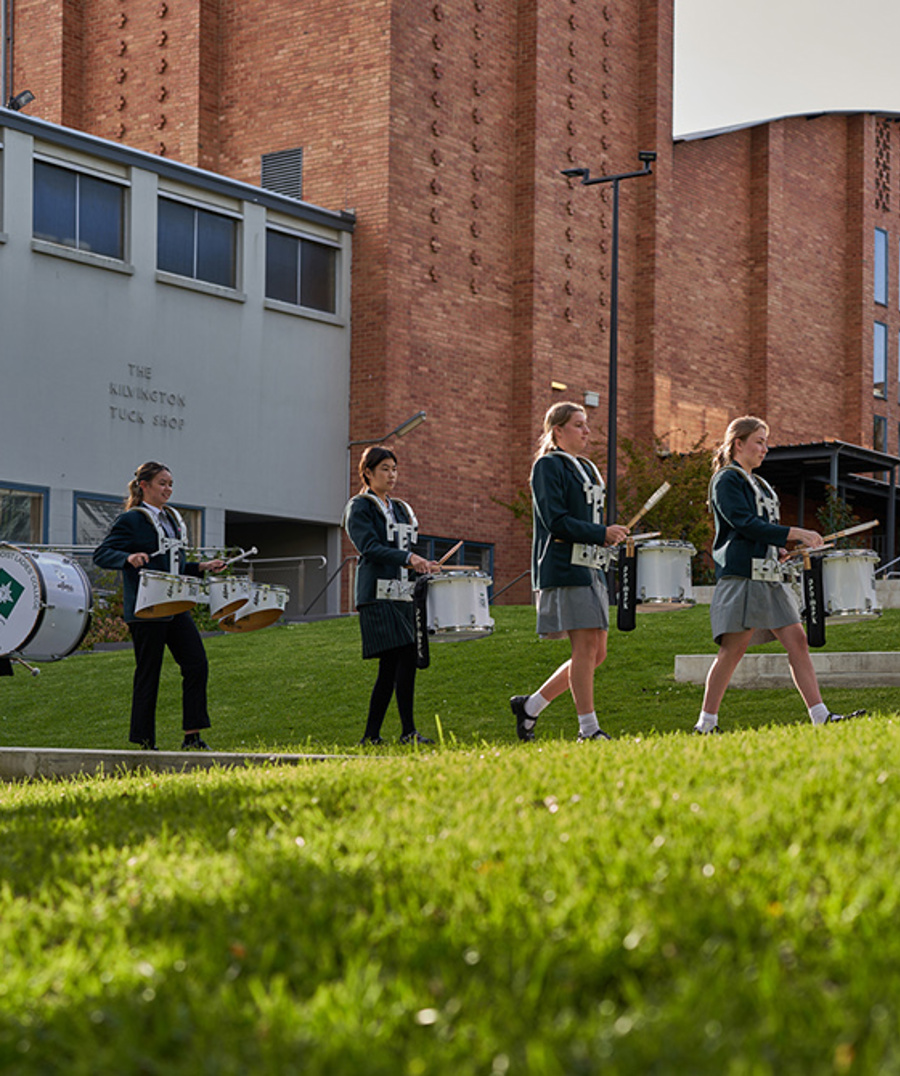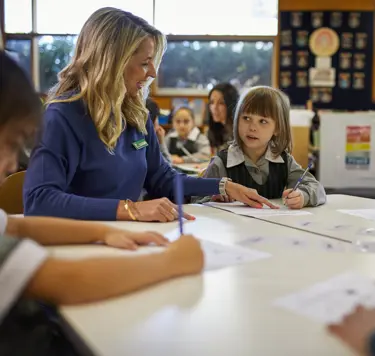
Support for all students
We recognise that all students have different abilities and needs. This is why we have developed one of the most well-resourced learning enrichment and support programs in Melbourne. We assist both gifted students and those that need additional support to progress. At MLC, we refer to this as Learning Diversity.
Building relationships is fundamental to everything we do at MLC. When it comes to students, it is about more than just knowing what they do on the weekend. It's understanding how they learn and what the best learning approach is for them. Respectful, trusted and caring relationships create the ideal conditions for learning.
MLC’s Learning Diversity approach is an evidence-based, proactive support practice that is part of a differentiated classroom – it is a collaborative effort with classroom teachers and our Learning Diversity specialised teachers and staff.
"Our work is to support students to harness their strengths, thrive in their learning and positively engage with themselves, the school community and the world around them."
- Christine Johns, Director of Learning Diversity
Catering to Melbourne’s highly talented and gifted students
It is particularly important to note that our approach to Learning Diversity is not just about support for students who have challenges; our Learning Diversity approach allows for high potential students to excel. We do this through a range of learning experiences and programs that go beyond the scope of the differentiated classroom.
We support students to:
- reach their potential in a way that removes them from being defined by an IQ score
- identify themselves as authentic learners
- help them to realise their capacity as gifted learners to influence the world to make a positive change
- have their talents recognised and developed through a diverse measure of success
We recognise that gifted students need to have their intellectual and affective needs met through appropriate educational programs and support. We present highly capable students and gifted children with the challenges they require to thrive at school, including:
- Subject-specific extension, which is managed through the differentiated classroom curriculum. Our specialists provide professional support for teachers to identify and cater for high-ability and gifted students within the differentiated curriculum.
- Targeted Programs where identified students will be provided opportunities to learn collaboratively in like-minded groups throughout the year by participating in programs such as the Math mentoring program with gifted University students (MLC alumnae), training and participation for multidisciplinary Da Vinci Decathlon and future Problem Solving
- Withdrawal groups, where the approach is based on design thinking principles and problem-solving with a focus on real-world issues.
Provides greater support and equal access to our broad curriculum for students with additional learning needs.
In our Junior School, we focus on enabling early intervention so students can catch up with their peers. Every classroom teacher is supported by a specialised Learning Diversity teacher with specialist qualifications in this field. Together they review a range of data regarding student progress and identify students who have not made sufficient progress in their learning by accessing a differentiated curriculum. Our Learning Diversity Teachers work with classroom teachers and student coordinators to explore support options and consult with parents/carers to implement a wide range of support strategies, including targeted intervention programs where needed.
As students progress into secondary school, greater focus is made on enabling greater agency for those who need support. For example, Year 7 to 10 students with higher learning support needs participate in the Language and Learning program to successfully transition and flourish at school by developing a more confident and positive attitude toward their learning, becoming more effective readers and writers and developing effective study habits. A repertoire of organisational and study strategies is developed, considering each student’s individual learning needs.
Throughout the secondary years, classroom teachers are provided support from our learning diversity specialists so they can adjust the content, learning process and expectations around the specific needs of identified students.
Our Deaf Education Program aims to empower and nurture each deaf or hard of hearing student, giving her the necessary skills and confidence to reach her full potential and become independent and world-ready.
Overview:
- Includes regular review meetings and provides an individualised learning program
- Facilitates in-class and withdrawal sessions with a Teacher of the Deaf
- Accommodates the needs of individuals, including communication skills – sign language, speech and listening skills, as well as social and wellbeing skills
- Provides support staff, including interpreters and note-takers, as required
- Uses modern acoustic systems in major venues and classrooms
- Uses observation, assessments and liaison with mainstream staff to support the student’s individual needs and optimise their participation.
Deaf Education Support Services
- Regular audiological services and hearing aid maintenance at MLC by a pediatric audiologist from Australian Hearing
- Individual Speech Therapy is available at MLC from an independent speech pathologist
- Liaison with other deaf agencies and services
If you have a question regarding our Deaf Education Support Services, please fill in this form.
Through our English as an Additional Language (EAL) program, we teach the English skills students who are linguistically/culturally diverse need to access the curriculum and offer a bridge to understanding the language and our education system and community.
By providing links with English curriculum requirements and clarifying what is happening in both the College and wider communities, EAL students are able to gain an in-depth and global understanding of the community around them.
Language proficiency is the key to success for EAL students. By providing a structured framework and varied language support options, students can develop the skills they need to realise their potential.
Eligibility for EAL in VCE
International students are eligible to take EAL as a VCE subject if they satisfy the Victorian Curriculum and Assessment Authority (VCAA) eligibility requirements:
The student has been a resident in Australia for not more than seven calendar years immediately before 1 January in which Year 12 English is begun
English has been the student's major language of instruction for not more than seven years before the commencement of the year in which Year 12 English is begun.

